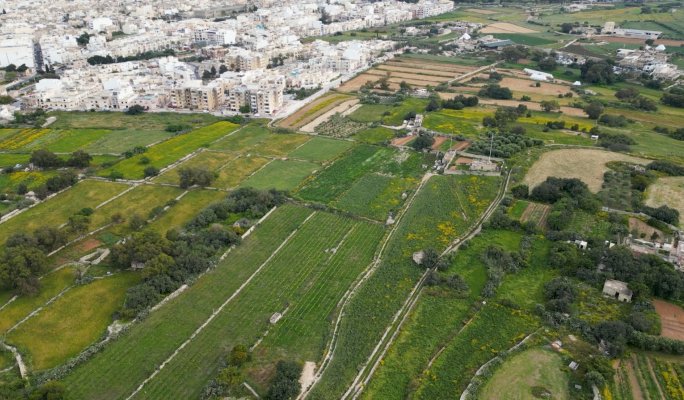Agricultural organisations have sounded their relief following the recent regulations aimed at preserving agricultural land.
The new regulations aim to tackle abandoned land and speculative neglect. To discourage land abandonment and preserve soil viability, the regulations stipulate that every plot must be cultivated at least once per agricultural year.
In a statement, agricultural organisations have expressed overwhelmingly positive feedback from those directly involved in farming.
The organisations noted however, that other stakeholders have interpreted the legislation as “intrusive.”
They flagged that agricultural land for recreational purposes has “become so accepted in Malta that legislating towards the preservation of our food-producing land is being interpreted as intrusive.”
The organisations stated that the concept of these new regulations serving as a “blueprint to safeguard and preserve our agricultural land” has taken many by surprise.
This surprise is attributed to Malta’s historical experience with planning and development policies, which has often involved “legalisms and loopholes to serve the individual” rather than planning for the “greater good”.
The authors assert that the ownership of the land, whether public, church-owned, or private, is “purely incidental,” stressing the state’s obligation to govern and manage for the public good.
They note that for those who own land used primarily for recreational activities, the regulations do not prohibit recreation, but only ensure cultivation.
The statement was signed by Emanuel Delicata Winemaker, Farmers’ Central Cooperative Society Ltd., Għaqda Bdiewa Attivi, Għaqda Produtturi tal-Għasel Malti, Koperattiva Bdiewa Dingli, Koperattiva Bdiewa Mġarr, Koperattiva Bdiewa Qormi u Għawdex, Koperattiva Bdiewa Rabat, Koperattiva Bdiewa San Pawl il-Baħar, Koperattiva Bdiewa Siġġiewi u Ħaż-Żebbuġ, Koperattiva Bdiewa Żabbar, Koperattiva Produtturi tal-Ħalib Group Ltd, and Koperattiva tat-Tadam ghall-Iprocessar Ltd.

